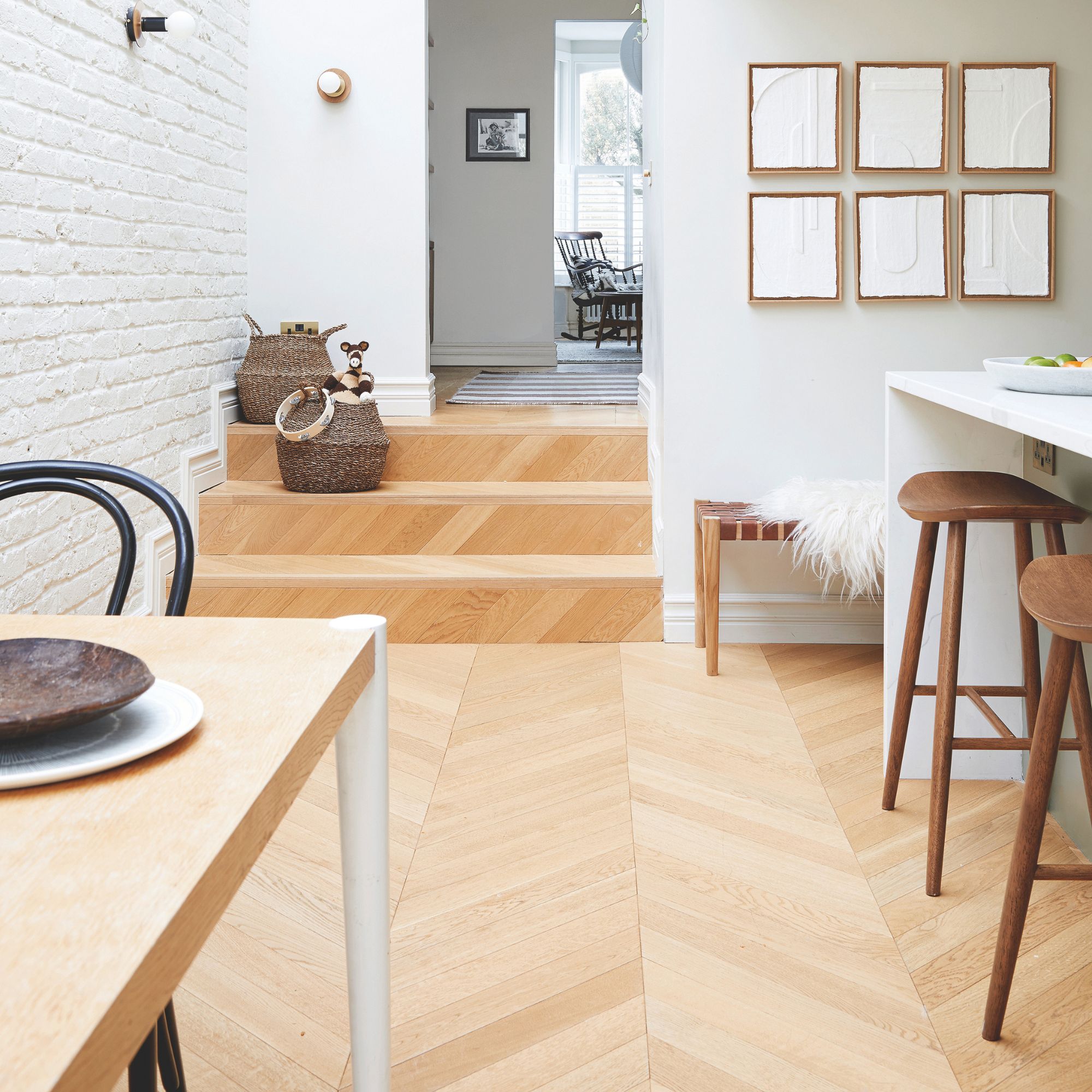
Aside from regular surface-level cleaning, there’s a high chance that you don’t pay your flooring much attention after installation. However, experts are now urging homeowners to listen out for the flooring sounds you shouldn’t ignore, as they could be a big indicator that something amiss is going on under the surface.
After all, floorcare is so much more than just choosing the right flooring for your home, installing it, and then giving it a once-over with the best vacuum every week.
If you want to avoid costly repair jobs and keep it in prime condition for as long as possible, you need to regularly ensure there’s no gaps, cracks, or damage that could potentially worsen over time. And a key indicator of that is the noise (or hopefully lack of noise) your flooring makes.
As well as complementing the design and layout of your room, your flooring should be silent and sturdy underfoot,' explains flooring expert Richard Oates from Topps Tiles. 'If you're hearing strange noises this is a clear sign you have underlying problems that need attention.’
So, these are the common floor sounds you shouldn’t ignore.
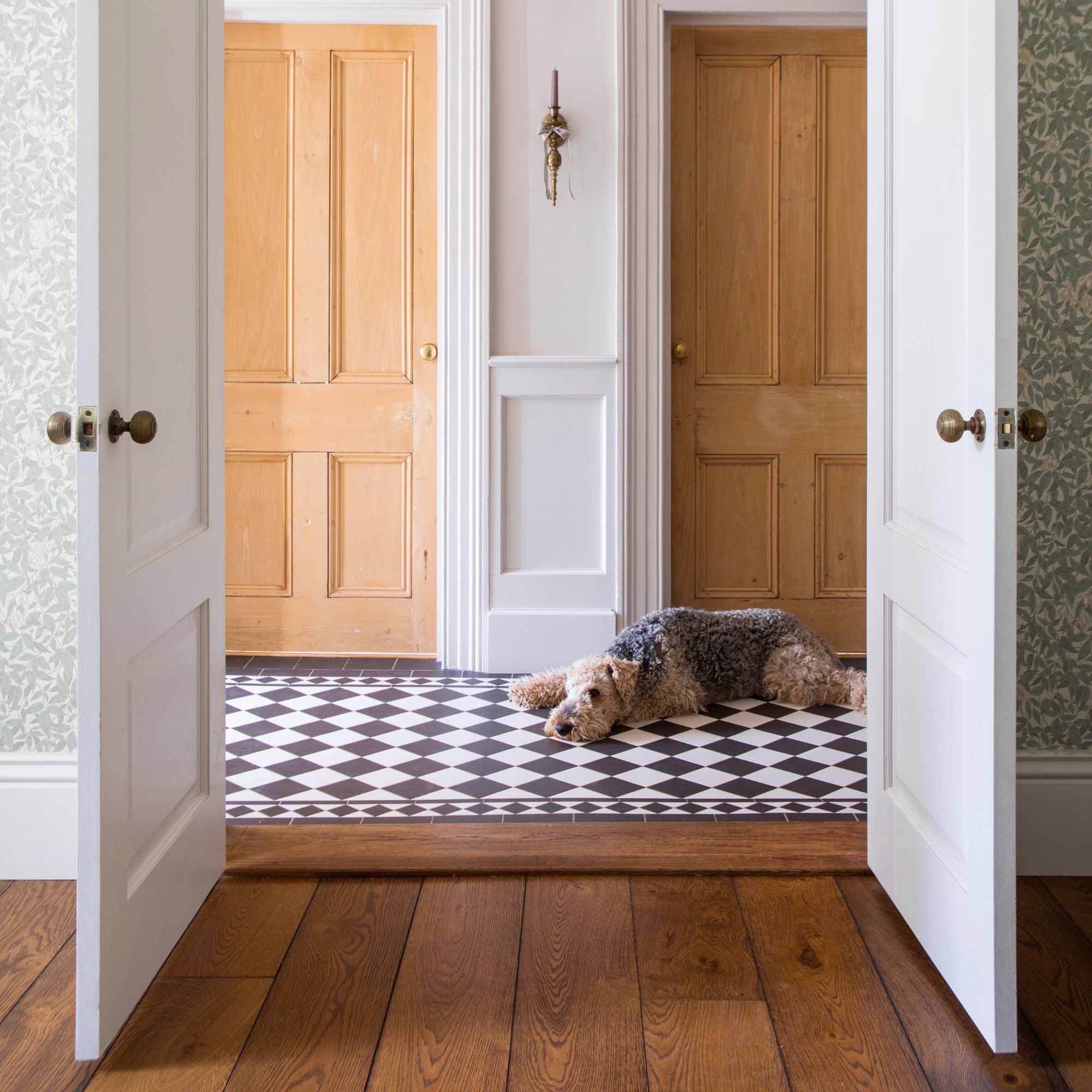
1. Creaking
Hearing creaking underfoot is one of the many flooring sounds you shouldn’t ignore, no matter whether you have hardwood flooring or have installed carpet over wooden floorboards. In fact, it’s a sure sign that you have a much bigger (and potentially costly) issue at hand.
‘Creaky wood floorboards are often a sign of high humidity levels, improper installation, or underlying issues with the subfloor,' explains Natalie Mudd, co-founder of flooring company Knot & Grain.
And all of these problems can increase the expansion and contraction of the planks, which causes gaps that create the unwanted creaks and squeaks.
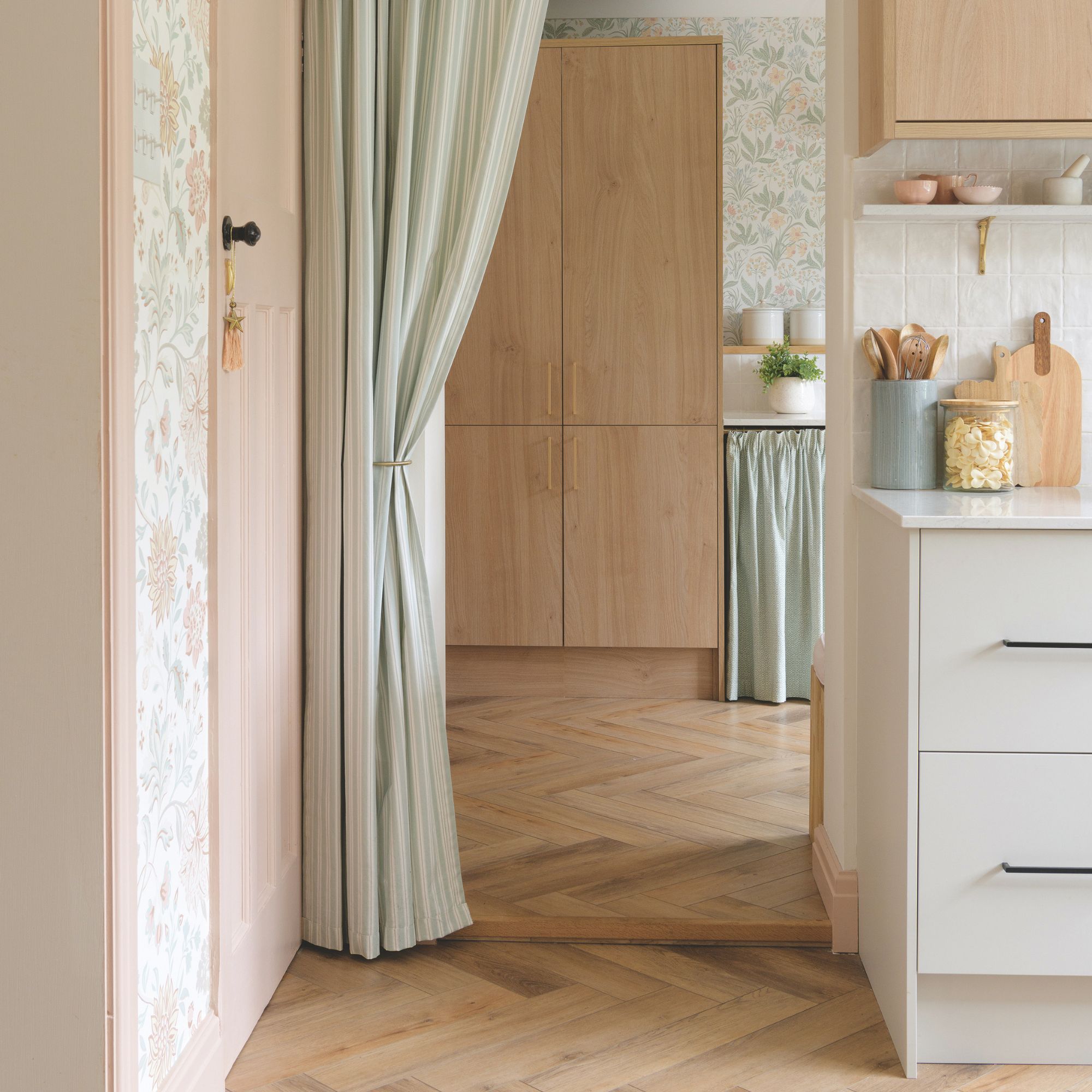
Thankfully, fixing squeaky floorboards can be simple - and Richard advises to ‘walk across the floor slowly and identify where the noise is coming from and secure any loose flooring.'
'Adhesive should be used to fasten glue down flooring while click system flooring should be reclicked into place.’ If you want to fix creaking floorboards under carpet, you’ll need to lift the carpet to do so.
In future, it’s also worth avoiding these mopping mistakes, as keeping as much moisture away from your floorboards as possible will keep them in tip-top condition for longer. You could also use one of the best dehumidifiers to keep your home at a safe and comfortable humidity.
This floor adhesive is suitable for most floor types, and it comes with all of the tools you'll need to get the job done - including a reusable syringe adapter and a patented customisable tip.
2. Popping
When you put your time and effort into choosing the best bathroom flooring ideas, it can be unnerving to hear popping every time you walk over your tiles. And if you’ve noticed this worrying flooring noise in any tiled room, you’ll need to try and fix it as soon as you can.
‘A sudden pop or snapping sound is particularly common in bathrooms and kitchens with tiled flooring,' says Richard. 'These sounds indicate the flooring has become loose as a result of regular changes in temperatures and humidity.'
'The likely cause of this is that expansion gaps around doors or other fixed objects weren’t accounted for during the installation stage and your flooring is now lifting or buckling.’
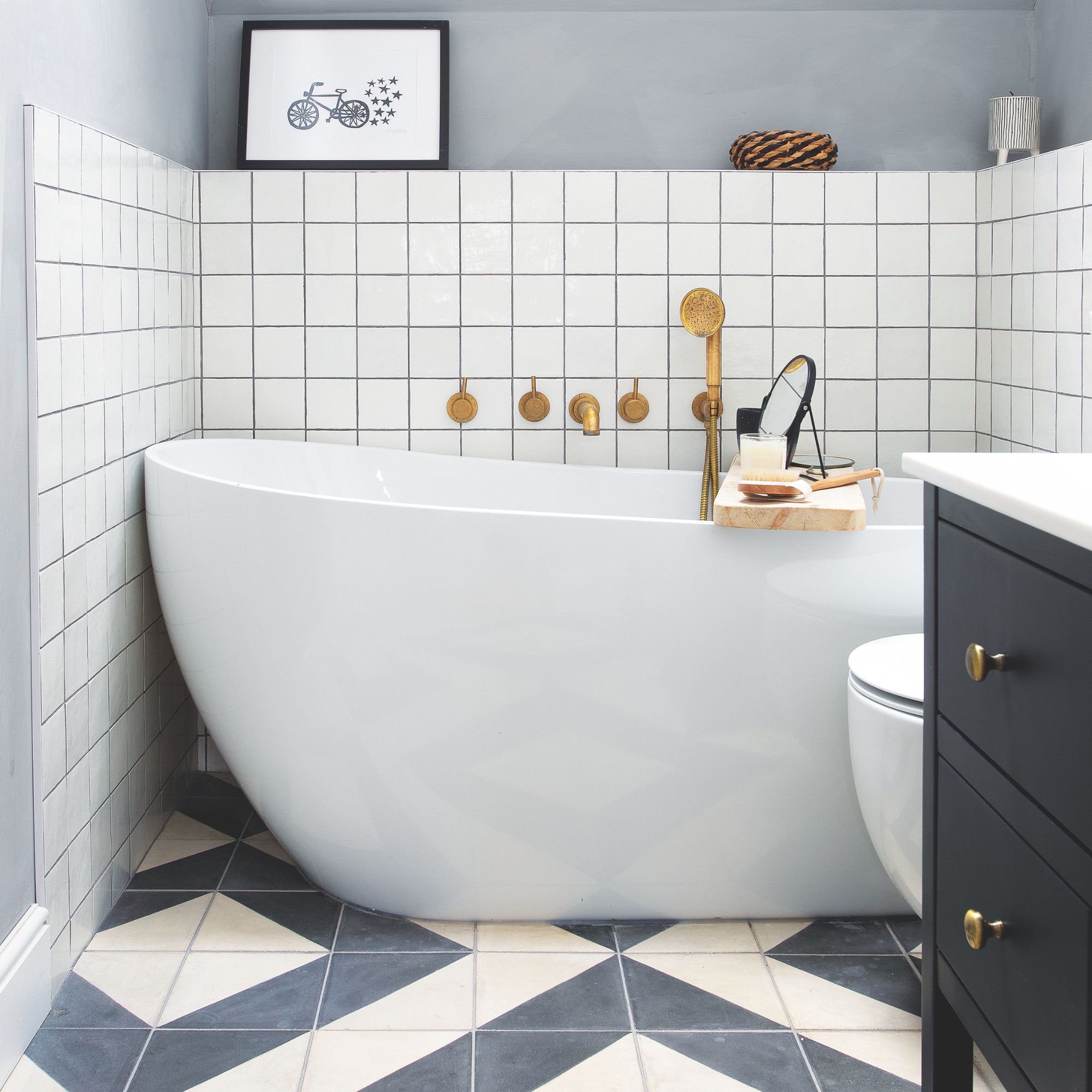
Unfortunately, the fix to this common flooring sound isn’t as simple and will require you to lift up the affected tiles and relay the old tiles with proper expansion gaps, or lay a whole new floor, making sure to lay it in a way that allows for this natural movement.
Then, you can take steps to keep these tiled kitchens and bathrooms at a steady humidity and temperature by opening windows, using extractor fans, or dehumidifiers. If necessary, you should also learn how to properly ventilate a bathroom without windows.
Crowned the 'best dehumidifier overall' in our guide, this model is perfect for keeping your home at the ideal humidity and preventing any excess moisture build-up around your floors.
3. Crunching
A vacuum will always help you keep on top of above-surface debris on your hard flooring and carpets, but if you hear crunching underneath your floors, it’s a sure sign that you have some kind of debris underneath your floors. And this is a flooring sound you shouldn’t ignore.
This might not just be dust or dirt, though. It could be that flooring adhesive used during the installation process has since come loose, or it could be that your flooring was not properly installed in the first place.
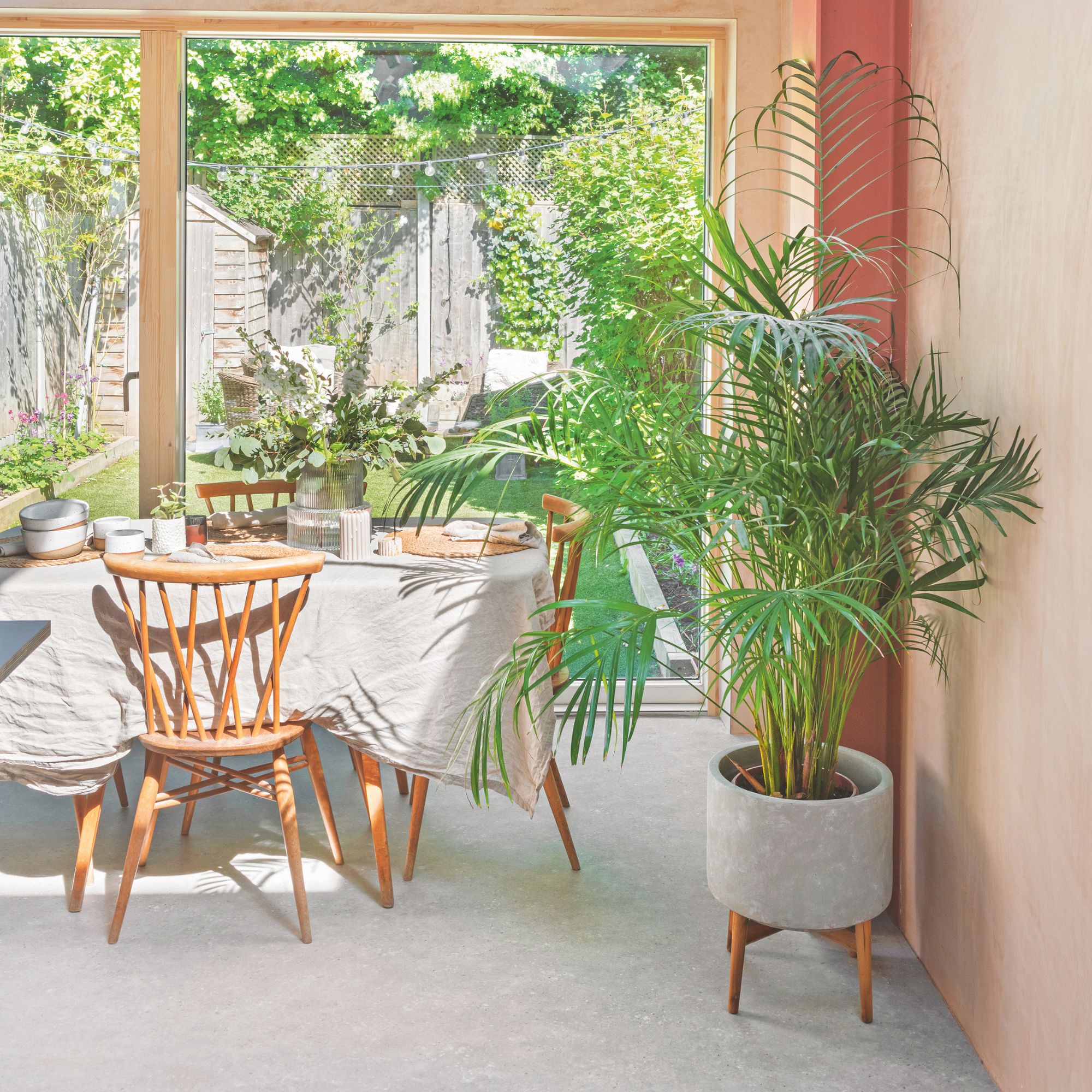
‘Crunching often occurs due to gaps not being properly sealed before installation - allowing dirt and particles to accumulate over time,’ explains Richard. ‘Perhaps unsurprisingly, the only way to tackle this issue is to stop it at source.’
This means that you’ll need to find where the gaps are, lift up the floor and remove the debris before popping everything back down and resealing the gaps to ensure it doesn’t happen again.
If doing this causes too much damage, it might be worth replacing your flooring. You can read our guide on how to plan wood flooring if you’re looking to go down the hardwood route.
This Shark model is one of the best handheld vacuums we've tested, and is perfect for cleaning up crumbs and debris from in between and underneath your flooring.
4. Clicking
If you have fitted hard flooring in your home - whether that be laminate flooring, vinyl, engineered wood, tiles, or hardwood flooring - it’s worth keeping an eye out for any clicking sounds when you walk over it, too.
And if you do, this is a sure sign that your subfloor is uneven and is causing your flooring to move more than it should.
The solution depends entirely on your flooring type and how uneven your subfloor actually is, as slight unevenness for glued down flooring can be fixed by fastening the planks back in place using a strong adhesive - like this EVO-STIK Flooring Adhesive from Amazon.
If you have a click system flooring, simply clicking the planks back in place may be enough.
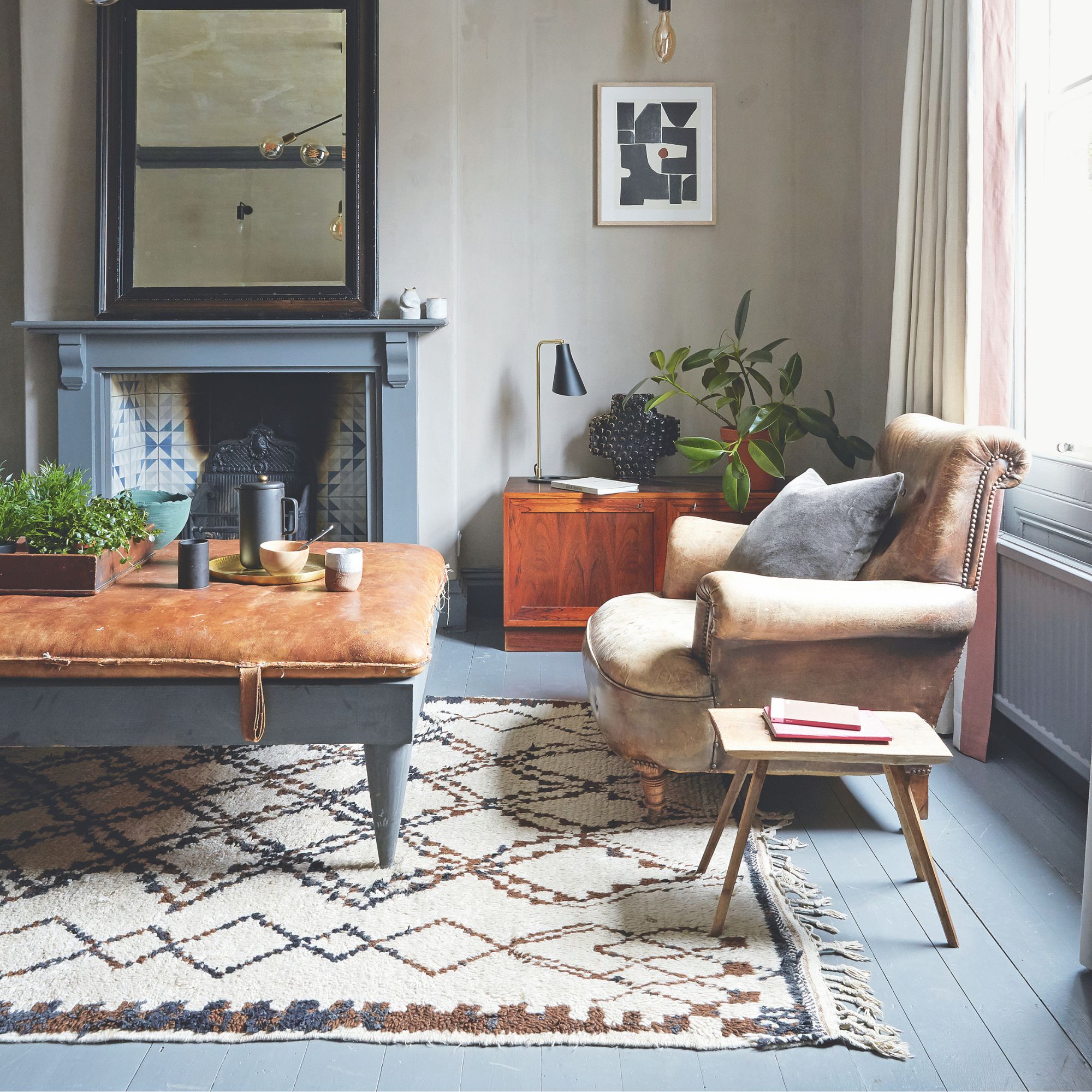
However, if your subfloor is particularly uneven, you may have to take tougher measures. ‘Should you continue to experience clicking, your flooring will need to be taken back up and the subfloor relevelled by a professional,' advises flooring expert Richard.
If you don’t have the cash to spend on a professional, there are self-levelling compounds that you can use instead. This will, however, require a certain level of DIY knowledge and may be a long process by the time you’ve removed your current flooring and poured out the compound.
When mixed with water, this levelling compound provides a smooth, level base for most common floor types. It only takes around 3-4 hours to dry, too.
5. Hollow sounds
Have vinyl flooring or another glued-down flooring type in your home? Another flooring sound you shouldn’t ignore is a hollow sound underneath your feet, as this indicates that there’s a gap. In fact, you may even be able to see or feel a noticeable dip or bulge.
As Richard explains, this ‘hollow or drum-like sound is caused by incorrect installation. When glued-down flooring isn’t correctly bonded to the subfloor, there is hollow space beneath it due to insufficient adhesive coverage. Over time this can lead to loose floorboards or even cracked tiles.’

Again, the fix for this common flooring sound will depend on the severity of the problem. ‘If you only hear the sound when walking on or tapping certain areas of the floor, you may be able to simply inject adhesive underneath the affected area as an easy fix,’ says Richard.
If your whole floor - or simply a much larger area - sounds hollow as you walk over it, there’s a high chance that the whole thing will need to be replaced. In that instance, it’s best to call out a professional to see what your options are.
If you find that the noises your floors are making aren't fixable, I'd suggest replacing it with engineered wood like this. It's more affordable than real wood flooring, but still offers a seamless finish.
FAQs
What is the best flooring to dampen sound?
Most experts would agree that softer flooring types - like carpet, vinyl, cork, or even rubber - are the best if you want to dampen sound in your home as they absorb footsteps and movement more than others. However, that doesn’t mean that you’re limited to these options if you want to create a quieter or even soundproofed home.
In fact, most flooring types will dampen sounds if you use a high-quality underlay or backing underneath. This is readily available and fairly cheap to buy, but you may need to have it professionally installed if you’re not DIY inclined.
Is it normal for laminate floors to make noise?
As laminate is one of the cheapest and lowest-quality types of flooring out there, it’s not uncommon for laminate floors to make a noise. Many people find that their laminate floors will creak or pop and this is normally because of improper installation and changes in humidity.
The easiest way to stop laminate floors from making noise is to ensure that they’re properly sealed, but the worst case scenario is that you’ll need to replace the whole thing.
Do you have any other unusual flooring noises in your home? Let me know in the comments!







